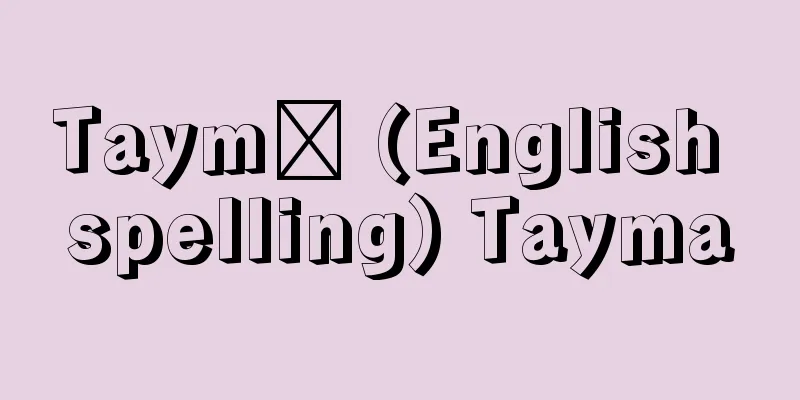Prosecutor's Office - Kensatsushinsakai

|
This system was established based on the Prosecutor's Review Board Act (Act No. 147 of 1948) to ensure that the exercise of the right to prosecute is fair and reflects public opinion. It is located in the location of the district court and district court branch as specified by government ordinance, and at least one must be located within the jurisdiction of each district court (Article 1 of the same act). Each Prosecutor's Review Board is composed of 11 prosecutors selected by lottery from among those who have the right to vote for members of the House of Representatives, and exercises its authority independently (Articles 4 and 3 of the same act). Its main responsibilities are matters related to the review of the propriety of prosecutors' decisions not to institute prosecution (Article 2 of the same act). There are cases where the review is required at the request of the person who filed the complaint, and cases where the review can be conducted by its own authority (Article 2 of the same act). Prosecutor's Review Board members are paid travel expenses, daily allowances, and accommodation expenses as specified by government ordinance (Article 29 of the same act). [Ichiro Uchida and Morikazu Taguchi] Prosecution Decision SystemThe deliberations of the Prosecutor's Review Board are not open to the public, and the decision of the Review Board is sent to the Chief Prosecutor. Previously, the decision of the Review Board was not binding on the Chief Prosecutor, but the 2004 amendment to the law significantly changed the Prosecutor's Review Board system, and certain decisions of the Review Board are now recognized as having the effect of instituting public prosecution. In other words, the review of the Prosecutor's Review Board is now in two stages, and if the first stage of the review results in a decision to indict, and the prosecutor again decides not to indict, the second stage of the review begins, and if the second stage of the review results in a decision to indict, the decision to indict is recognized as having the effect of instituting public prosecution, and the designated lawyer will institute public prosecution and maintain the trial. This is the introduction of the indictment decision system. The reason for this two-stage system is to give the prosecutor, who is the original public prosecutor, an opportunity to reconsider, and to make the review of the Prosecutor's Review Board more careful, thereby ensuring the rights of suspects and defendants. In the first stage of the review, the Prosecutorial Review Board shall decide whether to indict, whether not to indict is inappropriate, or whether not to indict (Article 39-5 of the same law). If the prosecutor decides not to indict despite the decision to indict, and notifies the Prosecutorial Review Board, the Prosecutorial Review Board must begin the second stage of the review to determine whether the decision is appropriate (Article 41-3, Article 41-2, Paragraph 1 of the same law). In addition, if the prosecutor does not notify the Prosecutorial Review Board within three months of the date of sending a certified copy of the resolution to indict, the Prosecutorial Review Board shall begin the second stage of the review (Article 41-2, Paragraph 2 of the same law). If the Prosecutorial Review Board decides that indictment is appropriate, it shall decide by a majority of eight or more members to indict (resolution to indict) (Article 41-6, Paragraph 1 of the same law). In carrying out this review, the prosecutor must appoint an assistant examiner (described below) to conduct the review based on specialized legal knowledge (Article 41-4 of the same Act), and must give the prosecutor an opportunity to express his or her opinion prior to the decision (Article 41-6, Paragraph 2 of the same Act). [Moriichi Taguchi] Examination Assistant SystemIn the 2004 law reform, the review assistant system was introduced to make the review by the Prosecutorial Review Board more fair and substantial. That is, when the Prosecutorial Review Board deems it necessary to supplement the professional knowledge of law, it may commission one review assistant from among lawyers for each case (Article 39-2 of the same law). The appointment of a review assistant is necessary for the second stage of review. The review assistant explains the laws and their interpretations related to the case, organizes the factual and legal issues of the case, organizes the evidence related to the issues, and provides necessary advice from a legal perspective regarding the review of the case (Article 39-2, Paragraph 3 of the same law). However, the review assistant must not make any statements or actions that may hinder the independent judgment of the review committee members, such as persuading them to make a specific decision (Article 39-2, Paragraph 5 of the same law). The new prosecutorial review board system, particularly through the creation of the indictment decision system, has made important revisions to the state prosecution principle by making it more effective to reflect public opinion regarding the exercise of the right to prosecute. However, it should be noted that the decision to indict is by no means the decision of citizens alone, but is the result of a kind of collaboration with legal experts, with the cooperation of assistant prosecutors who are lawyers and the necessity of hearing the opinions of prosecutors. [Moriichi Taguchi] [References] | | | |Source: Shogakukan Encyclopedia Nipponica About Encyclopedia Nipponica Information | Legend |
|
公訴権の実行に関し民意を反映させてその適正を図るため検察審査会法(昭和23年法律第147号)に基づいて設けられた制度。政令で定める地方裁判所および地方裁判所支部の所在地に置かれ、各地方裁判所の管轄区域内に少なくともその一つを置かなければならない(同法1条)。検察審査会は、それぞれ、衆議院議員の選挙権を有する者のなかからくじで選定した11人の検察審査員をもってこれを組織し、独立してその職権を行う(同法4条、3条)。おもな所掌事項は、検察官の公訴を提起しない処分の当否の審査に関する事項である(同法2条)。告訴をした者などの申立てにより前記の審査を行うことを要する場合と、職権によってこの審査を行える場合とがある(同法2条)。検察審査員には、政令の定めるところにより旅費、日当および宿泊費が支給される(同法29条)。 [内田一郎・田口守一] 起訴議決制度検察審査会の審理は非公開であり、審査会の議決は検事正に送付される。以前は、審査会の議決は検事正を拘束するものではなかったが、2004年(平成16)の法改正で検察審査会制度は大きく変革され、審査会の一定の議決に公訴提起の効果が認められることとなった。すなわち、検察審査会の審査は2段階とされ、第1段階の審査で起訴相当の議決をしたのに対して、検察官が再度不起訴処分をした場合には第2段階の審査を開始し、その審査であらためて起訴相当の議決をしたときは、この起訴議決に公訴提起の効果を認め、指定弁護士が公訴を提起し、公判の維持にあたることとなった。起訴議決制度の導入である。このような2段階制度としたのは、本来の公訴官である検察官に再考の機会を与えるとともに、検察審査会の審査をより慎重なものとして、被疑者・被告人の権利保障を図るためである。 検察審査会は、第1段階の審査において、起訴相当の議決、不起訴不当の議決または不起訴相当の議決を行う(同法39条の5)。そして、起訴相当の議決が行われたにもかかわらず、検察官があらためて不起訴処分とし、これを検察審査会に通知したときは、検察審査会は第2段階の審査として当該処分の当否の審査を開始しなければならない(同法41条3項、41条の2第1項)。また、起訴相当の議決に係る議決書の謄本を送付した日から3か月以内に検察官からの通知がなかったときも、第2段階の審査を開始する(同法41条の2第2項)。第2段階の審査において、あらためて起訴を相当と認めるときは、8人以上の多数により、起訴すべき旨の議決(起訴議決)をする(同法41条の6第1項)。この審査にあたっては、後述の審査補助員を委嘱し、法律に関する専門的知見をふまえた審査を行わなければならず(同法41条の4)、また、議決に先だって検察官に意見を述べる機会を与えなければならない(同法41条の6第2項)。 [田口守一] 審査補助員制度2004年の法改正において、検察審査会の審査をいっそう適正かつ充実したものとするために、審査補助員制度が導入された。すなわち、検察審査会は、法律に関する専門的な知見を補う必要があると認めるときは、弁護士のなかから事件ごとに一人の審査補助員を委嘱することができる(同法39条の2)。第2段階の審査では、審査補助員の委嘱が必要的となる。審査補助員は、当該事件に関係する法令およびその解釈を説明し、当該事件の事実上および法律上の問題点を整理し、ならびに当該問題点に関する証拠を整理し、当該事件の審査に関して法的見地から必要な助言を行う(同法39条の2第3項)。ただし、審査補助員は、検察審査員に、特定の判断をするよう説得するなどの審査員の自主的な判断を妨げるような言動をしてはならない(同法39条の2第5項)。 新たな検察審査会制度は、とりわけ起訴議決制度の創設により、公訴権の行使に関する民意の反映をより実効化して国家訴追主義に重要な修正を加えた。ただし、起訴議決もけっして市民だけの判断ではなく、弁護士である審査補助員の協力や検察官の意見聴取を必要的とするなどして、法律専門家との一種の協働作業の結果であることに注意すべきである。 [田口守一] [参照項目] | | | |出典 小学館 日本大百科全書(ニッポニカ)日本大百科全書(ニッポニカ)について 情報 | 凡例 |
>>: Public prosecutor; Staatsanwaltschaft
Recommend
Sagara clan
A samurai family from the Middle Ages to the earl...
Gomes Leal, AD (English spelling) GomesLealAD
…Portugal was founded by a group of writers who w...
Nierembergia (English spelling)
A genus of perennial plants in the Solanaceae fami...
Shisui Okano
...The Drama Reform Association achieved the firs...
Linden, J.
...In Nepal and Borneo, orchids are planted in sa...
al-Zarqali (English spelling)
…The solitary mystic Ibn al-'Arabi wrote the ...
Rikushingen
A scholar from the late Qing Dynasty in China. Hi...
Jujube - Natsume
〘Noun〙① A deciduous tree of the Rhamnaceae family....
dvorets kul'tury (English spelling) dvoretskultury
…[Tokihiko Mori] Similar facilities were also fou...
Goldstein, Kurt
Born: November 6, 1878 in Katowice, Silesia [Died]...
Edward Bradford Titchener
American psychologist. Born in England. A student...
Dobby
…They disappear if you change their clothes, call...
Diffraction grating
A grating is an optical element that consists of ...
libretto
The brand name of a Windows mini-notebook computer...
Montagu, J., 4th Earl of Sandwich
…[Shizuo Tsuji]. … *Some of the terminology that ...




![Gushikami [village] - Gushikami](/upload/images/67cb67dc8238c.webp)




